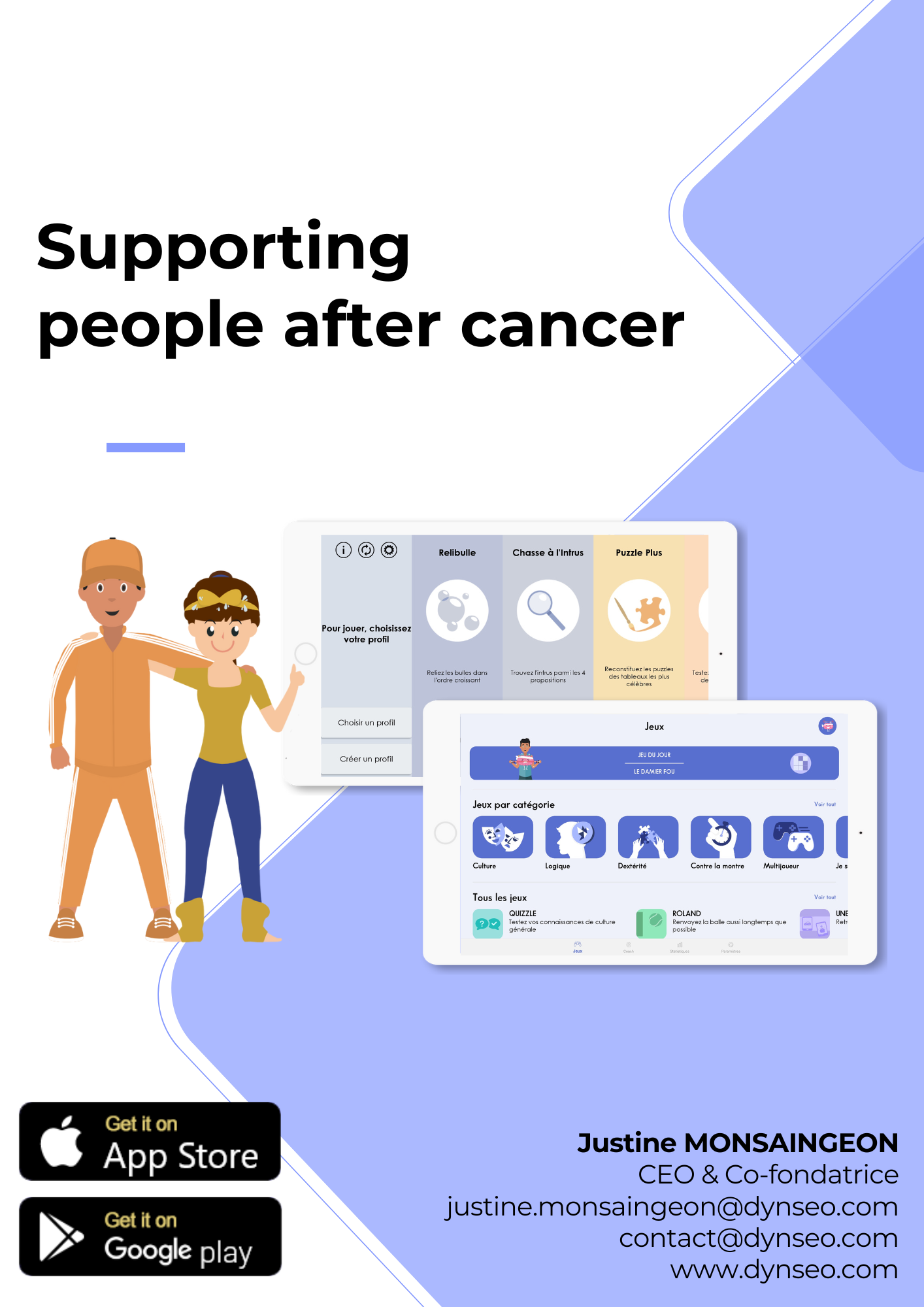When we think about cancer treatment, our minds often gravitate towards the physical toll it takes on the body. However, we must also recognize the cognitive effects that can accompany such treatments. Many of us may not be aware that chemotherapy, radiation, and other cancer therapies can lead to a phenomenon commonly referred to as “chemo brain.” This term encompasses a range of cognitive impairments, including difficulties with memory, attention, and executive function.
As we navigate through the complexities of cancer recovery, it becomes increasingly important to understand how these cognitive changes can impact our daily lives and overall quality of life. We may find ourselves struggling with tasks that were once second nature, leading to frustration and a sense of loss. Moreover, the cognitive effects of cancer treatment can extend beyond the immediate aftermath of therapy.
Research indicates that some individuals may experience long-term cognitive deficits, which can affect their ability to return to work or engage in social activities. This can create a cycle of isolation and depression, further exacerbating the cognitive challenges we face. As we come to terms with these changes, it is essential to seek out resources and support systems that can help us regain our cognitive abilities.
Understanding the cognitive effects of cancer treatment is the first step in addressing these challenges and finding effective strategies for recovery.
The Role of Speech Therapy in Post-Cancer Recovery
Speech therapy plays a crucial role in the recovery process for many individuals who have undergone cancer treatment. For those of us who experience cognitive impairments, speech therapy can provide targeted interventions designed to improve communication skills and cognitive function. Speech-language pathologists are trained professionals who can assess our specific needs and develop personalized treatment plans that address our unique challenges.
Through various techniques and exercises, they help us regain our ability to articulate thoughts clearly and effectively, which is vital for maintaining relationships and engaging in social interactions. In addition to improving communication skills, speech therapy can also focus on enhancing cognitive functions such as memory and attention. Many of us may find it difficult to concentrate or remember important information after cancer treatment.
Speech therapists utilize a variety of strategies, including memory exercises and attention-building activities, to help us strengthen these cognitive skills. By participating in speech therapy, we not only work on our communication abilities but also foster a sense of empowerment as we take active steps toward reclaiming our cognitive health.
Benefits of Using Speech Therapy Apps for Cognitive Support

In the modern digital era, the integration of technology has revolutionized the way we approach speech therapy, offering accessible and flexible solutions for individuals seeking cognitive support. Speech therapy apps have proven to be invaluable tools for individuals recovering from cancer, providing a practical means of engaging in therapeutic exercises from the comfort of home.
1. Accessibility and Convenience
Speech therapy apps provide an easy and convenient way to access therapy exercises, eliminating the need for frequent in-person sessions. With just a smartphone or tablet, we can engage with a variety of exercises, anytime and anywhere. This level of accessibility is especially beneficial for individuals with mobility challenges or those living in remote areas with limited access to traditional therapy.
- Anytime, Anywhere: The ability to practice therapy at any time makes it easier to integrate into daily life, providing flexibility in scheduling.
- Home-Based Support: These apps offer a level of comfort by allowing individuals to work on their therapy from home, promoting consistency in practice.
2. Personalization and Adaptive Learning
One of the standout features of many speech therapy apps is their ability to personalize the experience based on individual needs. Many apps incorporate adaptive learning algorithms that adjust the level of difficulty depending on the user’s progress. This ensures that the user is always working at an appropriate level of challenge, which helps prevent feelings of frustration or stagnation.
- Tailored to Individual Progress: Adaptive learning ensures users are consistently engaged, neither bored by tasks that are too easy nor overwhelmed by tasks that are too difficult.
- Customized Therapy Plans: Users can focus on specific areas that require more attention, such as articulation, memory recall, or cognitive processing, according to their unique needs.
3. Progress Tracking and Motivation
Speech therapy apps often come with built-in progress tracking features, enabling individuals to monitor their improvements over time. By seeing measurable progress, users can gain a sense of accomplishment, which serves as a powerful motivator throughout their rehabilitation journey.
- Visual Feedback: Progress graphs and achievements provide clear, visual indicators of growth, reinforcing the user’s commitment to therapy.
- Sense of Accomplishment: Tracking progress gives users a tangible way to measure success, keeping them motivated and focused on their goals.
4. Enhancing Cognitive and Communication Skills
Speech therapy apps are specifically designed to improve cognitive and communication skills, which are essential for recovery, particularly after cancer treatment. These apps include a variety of exercises and activities that target key cognitive areas such as memory, attention, language, and problem-solving.
- Cognitive Exercises: Many apps offer brain exercises that help stimulate memory retention, processing speed, and cognitive flexibility.
- Speech and Language Practice: Apps often provide speech exercises to improve articulation, fluency, and communication effectiveness, helping users regain their confidence in conversation.
5. Motivation through Gamification
To make therapy more engaging, many speech therapy apps incorporate elements of gamification, turning exercises into interactive games. These games often include rewards, levels, and achievements that encourage users to keep progressing.
- Interactive Learning: Users can participate in game-like exercises that keep them entertained while practicing essential skills.
- Engagement through Rewards: Points, badges, and other rewards serve to keep users motivated, making the process of recovery feel more like a fun challenge than a repetitive task.
6. Empowerment and Self-Directed Learning
The independence that comes with using speech therapy apps empowers individuals to take charge of their own recovery. With these apps, users can set their own pace and schedule, helping them feel more in control of their therapy and progress.
- Self-Directed Therapy: The autonomy to complete exercises without constant guidance fosters a sense of control and responsibility over recovery.
- Fostering Independence: Users can complete exercises independently, which builds confidence and promotes a proactive approach to recovery.
How Speech Therapy Apps Can Improve Communication Skills
Communication is an essential aspect of our daily lives, and any impairment in this area can significantly impact our relationships and social interactions. Speech therapy apps are designed to target various aspects of communication, including articulation, fluency, and language comprehension. By engaging with these apps regularly, we can practice essential skills that may have been affected by cancer treatment.
Many apps offer interactive exercises that encourage us to articulate words clearly or construct sentences effectively, helping us rebuild our confidence in communicating with others. Furthermore, speech therapy apps often incorporate gamification elements that make learning enjoyable and engaging. As we navigate through different levels and challenges within the app, we may find ourselves more motivated to practice regularly.
This playful approach not only makes the process enjoyable but also reinforces learning through repetition and positive reinforcement. By utilizing these apps as part of our recovery plan, we can enhance our communication skills while also fostering a sense of accomplishment and joy in the learning process.
Addressing Memory and Attention Issues with Speech Therapy Apps
Memory and attention issues are common challenges faced by many individuals recovering from cancer treatment. Fortunately, speech therapy apps are equipped with features specifically designed to address these cognitive impairments. Many apps include memory exercises that encourage us to recall information or recognize patterns, helping us strengthen our memory skills over time.
These exercises often involve engaging activities such as matching games or memory recall tasks that make the process enjoyable while effectively targeting cognitive deficits. In addition to memory exercises, speech therapy apps also offer activities aimed at improving attention span and focus. We may find ourselves easily distracted or struggling to concentrate on tasks after cancer treatment, but these apps provide structured activities that require sustained attention.
By practicing these exercises regularly, we can gradually enhance our ability to concentrate on tasks for longer periods. This improvement not only benefits our cognitive function but also positively impacts our daily lives as we become more engaged in conversations and activities.
Tips for Incorporating Speech Therapy Apps into Post-Cancer Recovery

As we embark on our journey toward cognitive recovery, incorporating speech therapy apps into our daily routines can be incredibly beneficial. One effective strategy is to set aside dedicated time each day for app-based practice. By establishing a consistent routine, we create a sense of structure that can help us stay motivated and engaged in our recovery efforts.
Whether it’s 15 minutes in the morning or a half-hour before bed, carving out time for these exercises allows us to prioritize our cognitive health. Additionally, it can be helpful to involve family members or friends in our app-based practice sessions. Engaging loved ones in our recovery journey not only provides social support but also creates opportunities for meaningful interactions.
We can practice communication skills together or share progress updates on our achievements within the app. This collaborative approach fosters a sense of community and accountability as we work toward regaining our cognitive abilities.
Personal Stories of Success with Speech Therapy Apps
Hearing personal stories from others who have successfully utilized speech therapy apps can be incredibly inspiring as we navigate our own recovery journeys. Many individuals have reported significant improvements in their communication skills and cognitive function after incorporating these apps into their routines. For instance, one user shared how they struggled with word retrieval after cancer treatment but found that regular practice with a speech therapy app helped them regain their confidence in speaking.
They described feeling empowered as they could articulate their thoughts more clearly during conversations with friends and family. Another individual recounted their experience with memory exercises within a speech therapy app. They had faced challenges remembering important dates and events but found that consistent practice helped them improve their recall abilities significantly.
They expressed gratitude for the app’s engaging format, which made practicing enjoyable rather than daunting. These success stories remind us that recovery is possible and that utilizing available resources can lead to meaningful improvements in our cognitive health.
Resources for Finding and Using Speech Therapy Apps for Post-Cancer Recovery
As we seek out effective tools for enhancing our cognitive recovery post-cancer treatment, numerous resources are available to help us find suitable speech therapy apps. Online platforms such as app stores provide user reviews and ratings that can guide us in selecting high-quality applications tailored to our needs. Additionally, many organizations focused on cancer recovery offer recommendations for reputable speech therapy apps designed specifically for individuals facing cognitive challenges.
Furthermore, consulting with healthcare professionals such as speech-language pathologists can provide valuable insights into which apps may be most beneficial for us. These experts can assess our specific needs and recommend targeted resources that align with our recovery goals. By leveraging these resources and actively engaging with speech therapy apps, we can take significant strides toward reclaiming our cognitive abilities and enhancing our overall quality of life after cancer treatment.
For individuals recovering from cancer, cognitive support is often a crucial part of the rehabilitation process. Speech therapy apps can play a significant role in this aspect of recovery, helping to improve communication abilities that may have been affected by the illness or its treatment. A related article that discusses the benefits of cognitive training for post-traumatic stress, which can similarly affect cognitive functions, can be found at this link. This article explores how cognitive exercises can aid in managing symptoms of stress and trauma, offering insights that might be beneficial for post-cancer cognitive recovery as well.




